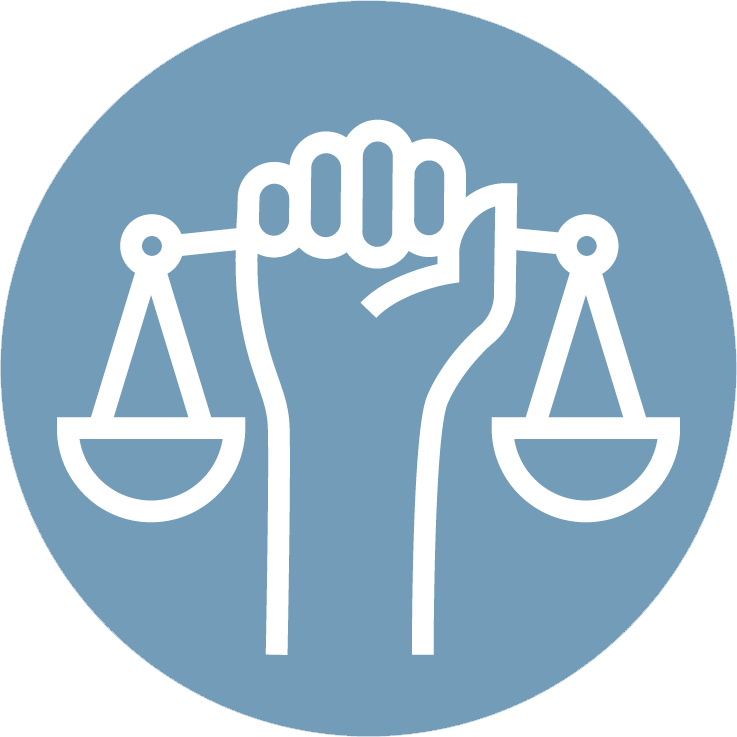Issues
A non-exhaustive list of issues that were identified during the development of SNAP 2 includes:
- Evidence shows that there is a lack of widespread understanding and acceptance of human rights and international human rights law by the general public, specific groups of rights holders, and duty bearers. Without this, there is a less empowerment and ownership of human rights and accountability, which are essential to achieving a human rights culture.
- There are gaps in intersectional equality and human rights data and analysis on outcomes, and human rights are not comprehensively embedded and mainstreamed into the collection, analysis and reporting of intersectional equality data.
- Unlike many countries – including England and Wales – Scotland does not have a national human rights tracker tool. Without it, there is no comprehensive monitoring or scrutiny of human rights progress that identifies progress and success, as well as gaps where targeted action is needed.
- Human rights should be everyone’s business, including the private sector. Developing a Business and Human Rights Action Plan was an action for SNAP 1, and although work began on a draft, a final plan has not been published. If Scotland continues with developing a Business and Human Rights Action Plan, it is important that this is coordinated with SNAP as the national human rights action plan.
- Ongoing and increasing levels of stigma, discrimination, bullying, hate crime, violence, negative attitudes and media coverage lead to worse outcomes across a range of human rights for LGBTQIA+ people.
- Despite the diversity of faith and belief communities in Scotland, freedom of faith and belief is not recognised or well understood as a human rights issue. There is a particular lack of reliable national and service-level data collection and published evidence on the needs of people from different religious communities across a variety of public services.
- Human rights are not fully embedded or mainstreamed into national equality policy to tackle race inequality on a long term basis, which means that there are potential gaps in ensuring that the rights of Black and minority ethnic people are respected, protected and fulfilled.
- Human rights should be fully embedded and mainstreamed into national equality policy focused on Scottish Gypsy/Travellers, and members of this community should be fully involved in policy-making.
- Everyone in Scotland has economic, social and cultural rights, regardless of where they were born or their immigration status. However, migrants – including those with No Resource to Public Funds, EU citizens that have been impacted by Brexit, and those born elsewhere who now live in Scotland – face some of the most serious risks to these rights. Even though immigration is a reserved matter for the UK Parliament, action can be taken in Scotland to help progressively realise the economic, social and cultural rights of migrants in a collaborative way.
- SNAP 2 should include its own explicit requirement for an independent, rights-based evaluation.
Actions
- Develop and deliver a strategic programme across Scotland to significantly increase understanding of human rights, human rights law and a human rights-based approach amongst rights holders – particularly those whose rights are most at risk – and those who work in public services. The programme will enable community level engagement to promote human rights understanding, embed human rights in professional and occupational training and education, and include evaluation and impact measurement from the outset to continually learn from experience and shape the programme to be as effective as possible.
- Mainstream and embed human rights in the collection, analysis and reporting of intersectional equality data, to support greater accountability, provide outcomes-related evidence, and help progressively realise economic, social and cultural rights.
- Develop and maintain an accessible tracker tool to measure, monitor and support the implementation of international treaty body and Universal Periodic Review (UPR) recommendations.
- Monitor and review Scottish Government’s development and implementation of the emerging Scottish Business and Human Rights Action Plan.
- Put into place proactive measures to increase positive public awareness of the rights of LGBTQIA+ people. Monitor and challenge violations, negative public awareness, and negative media coverage of these rights.
- Carry out a human rights review of lived experience and discrimination related to freedom of religion and belief in Scotland. The review will explore diverse experiences and views and identify areas of concern for religious groups and communities. The findings and recommendations will be used to inform, improve and support the implementation of rights-based policy and practice.
- Mainstream and embed human rights in the Race Equality Framework 2030 and the proposed new independent Observatory being created to develop anti-racist infrastructure in Scotland.
- Mainstream and embed human rights in the new Scottish Gypsy Traveller Action Plan and ensure that there is measurable involvement of Scottish Gypsy Traveller communities in the Plan’s development, implementation, monitoring, and evaluation.
- Carry out a human rights review of Scottish law, policy and practice to identify changes that can be made – as far as possible in the context of devolution – to meet the obligations of economic, social and cultural rights in relation to migrants in Scotland, including those who are subject to No Recourse to Public Funds.
- Design and deliver an independent rights-based evaluation of SNAP 2 that takes a learning and reflective approach across the actions and governance from the outset and focuses on the impact on people’s lives and rights holder participation. Publish evaluation findings and recommendations to support widespread learning and help shape future human rights law and policy developments across Scotland, the UK, and beyond.
End of page.
